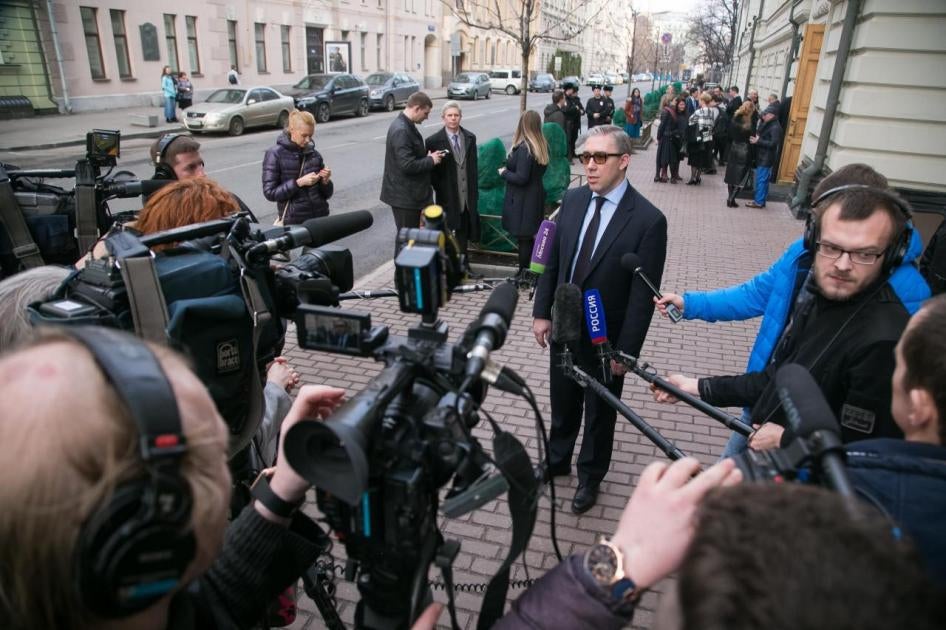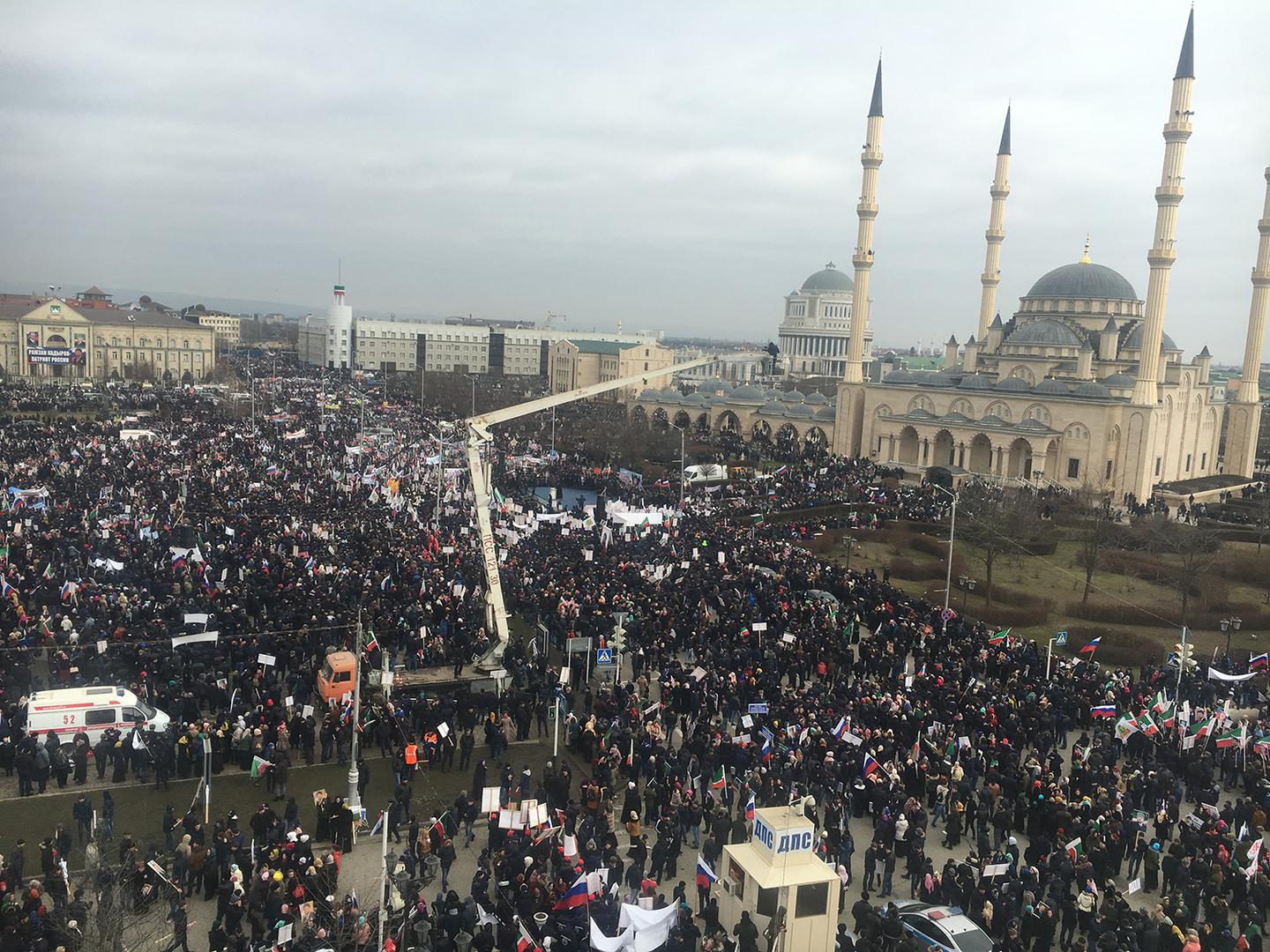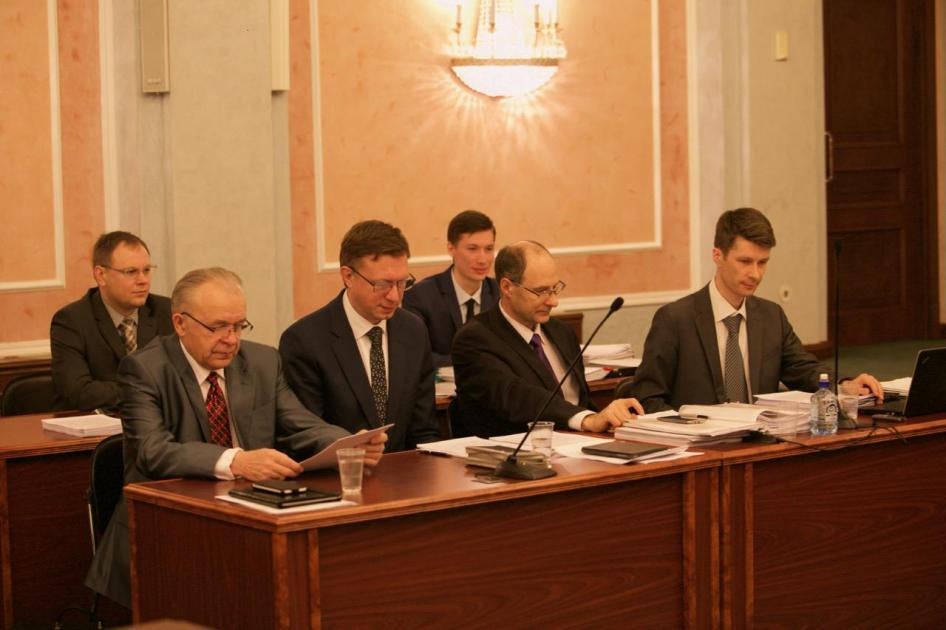(Moscow) – Russia’s Supreme Court ruled on April 20, 2017 that the Jehovah’s Witnesses organization should be closed down and no longer allowed to operate legally in Russia, Human Rights Watch said today. The ruling, which affects more than 100,000 Jehovah’s Witness worshippers across Russia, is a serious breach of Russia’s obligations to respect and protect religious freedom.
The Justice Ministry, which had petitioned the Supreme Court to close the Jehovah’s Witnesses organization, should withdraw the case and refrain from taking further measures that violate its obligations to respect the Jehovah’s Witnesses organization’s right to freedom of religion and to association. The Jehovah’s Witnesses organization said it will appeal the ruling to the European Court of Human Rights.
“The Supreme Court’s ruling to shut down the Jehovah’s Witnesses in Russia is a terrible blow to freedom of religion and association in Russia,” said Rachel Denber, deputy Europe and Central Asia director at Human Rights Watch. “Jehovah’s Witnesses in Russia are now given the heartrending choice of either abandoning their faith or facing punishment for practicing it.”
The ruling declares the Jehovah’s Witnesses Administrative Center an extremist organization, closes the organization on those grounds, and bans all Jehovah’s Witnesses’ activities. The Jehovah’s Witnesses Administrative Center is the head office for 395 Jehovah’s Witnesses branches throughout Russia.
If the ruling enters into force, people who continue to be involved with Jehovah’s Witnesses organization or their activities in Russia could face criminal prosecution and punishment ranging from fines of 300,00 to 600,000 rubles (US$5,343 to $10,687) to a maximum of six to 10 years in prison. People found to be leading such activity would face a maximum 10 years. The organization’s property will be confiscated. Jehovah’s Witnesses will not be able to congregate for worship at their church or anywhere else.
According to the Justice Ministry, since 2007, local courts have banned at least eight local Jehovah’s Witnesses organizations, and 95 pieces of Jehovah’s Witnesses’ literature have been banned and placed on the federal registry of banned extremist materials. In most cases the ban was triggered by claims in the literature of the superiority over other religions of the Jehovah’s Witnesses’ interpretation of the Bible. Anyone found with large quantities of Jehovah’s Witnesses’ banned materials can be held responsible for the misdemeanor offense of distributing “extremist” materials.
The Justice Ministry case followed an unannounced inspection, started in February 2017, of the Jehovah’s Witnesses Administrative Center in St. Petersburg. The inspection found that the Administrative Center had continued to fund branches that had been closed after a court banned them for extremism. It also found the organization had taken no action to change “extremist” literature and had continued to distribute it. Jehovah’s Witnesses have vigorously denied the latter allegation. The Justice Ministry suspended all Jehovah’s Witnesses’ activities when the ministry filed its lawsuit on March 15.










